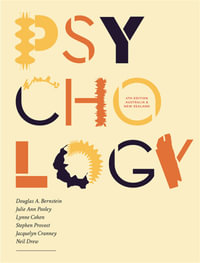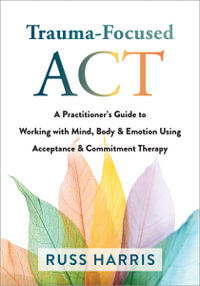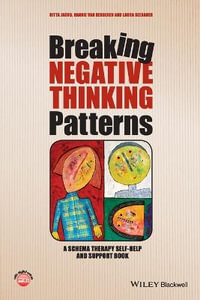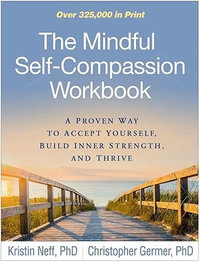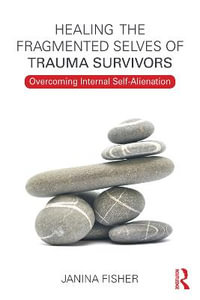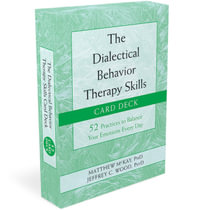Two professional secrets: First, cognitive behavior therapy (CBT) is more effective than medications for OCD in both short— and long—term benefits, and second, exposure and ritual prevention, the effective elements in CBT, must be done by OCD patients themselves. With these secrets revealed, how can OCD sufferers obtain CBT? Ideally, by finding an expert cognitive behavior therapist to guide their therapy. Since expert therapists are in very short supply, patients can also use Coping with OCD to close the gap between what is known and available. Coping with OCD provides excellent specific guidance so OCD patients can carry out CBT themselves. It is a welcome addition to the armamentarium of OCD treatments and Hyman and DuFrene are to be commended for writing it.
—John Greist, MD, distinguished senior scientist at the Madison Institute of Medicine, clinical professor of psychiatry at the University of Wisconsin, and director of Healthcare Technology Systems
Coping with OCD is a timely, informative, and readable book on obsessive—compulsive disorder, the 'doubting disease'. The authors give practical advice on understanding the causes of OCD, and changing the way that sufferers accept, reframe and refocus their thoughts so that they can live life in the present, maintain their progress, and get the most out of life in spite of the OCD.
—Eric Hollander, MD, Esther and Joseph Klingenstein Professor and Chair of Psychiatry and director of the Seaver and New York Autism Center of Excellence at Mount Sinai School of Medicine
OCD is a common, painful, and often disabling disorder. People with OCD are tortured by intrusive thoughts and struggle with compulsive efforts to find peace of mind. The treatment of choice for OCD is cognitive behavior therapy. The standard treatment has been based on behavioral work using exposure to obsessions and refraining from compulsions. Cognitive behavior therapy is a living discipline, and in recent years exciting new ideas have formed what is known as the third wave. These ideas, in the form of acceptance and commitment therapy and mindfulness practice blend with exposure—based treatment to offer a powerful new way to separate the suffering from the experience of obsessions. There is a Buddhist saying that pain is inevitable but suffering is optional. Hyman and DuFrene have skillfully blended the third wave with proven exposure—based therapy into an accessible guide to coping with OCD. They describe the path away from suffering.
—James Claiborn, Ph.D, ABPP, psychologist with a practice specializing in OCD in Maine, founding fellow of the Academy of Cognitive Therapy and member of the Scientific Advisory Board of the Obsessive—Compulsive Foundation
This book is the next best thing to private sessions with one of the country's best OCD therapists. Whether you're in treatment for OCD or not, reading this book will be worth many hundreds of dollars to you. It's packed with useful advice for everyone with OCD, including effective new treatment techniques.
—Bruce Mansbridge, Ph.D., director of the Austin Center for the Treatment of OCD
Coping with OCD joins the highest tier of other patient—focused OCD books. People with OCD (and their loved ones) will appreciate the easy—to—read and practical nature of the text. Hyman and DuFrene provide numerous insights and directions for challenging OCD symptoms that may help the reader learn how to think and act differently and ultimately gain greater control of his or her condition.
—Eric A. Storch, Ph.D., assistant professor and director of Cognitive Behavioral Therapy Research in the Departments of Psychiatry and Pediatrics at the University of Florida
This book brings Hyman's expert knowledge and clinical wisdom to OCD sufferers and their families with clarity and compassion. Built on the latest scientific evidence, it incorporrates the latest standards and directions in the treatment of OCD. Very easy to read, it tackles the bewilderment and pain that OCD brings and makes the complexities of OCD and its treatment quickly understandable. Full of practical and powerful strategies, this exceptional book will be a valuable resource for any OCD sufferer or family member. It brings sufferers hope, optimism and empowerment to take control of their lives in spite of OCD. I will recommend it with enthusiasm!
—Aureen P. Wagner, Ph.D., clinical associate professor of neurology at the University of Rochester School of Medicine and Dentistry, director of the Anxiety Wellness Center in Rochester, NY, member of the scientific advisory board of the Obsessive—Compulsive Foundation, and author of What to Do When Your Child Has OCD and Treatment of OCD in Children and Adolescents: A Professionals' Kit
This is a timely and welcome addition to the self—help literature for OCD sufferers. The authors offer a straightforward and user—friendly guide to the latest approaches in treatment, integrating newer acceptance and mindfulness approaches with the tried—and—true cognitive behavior techniques that have proven so effective. The book is well written with an engaging style that communicates warmth, humor, and compassion. I will recommend it to my patients and others who suffer from OCD and to therapists who wish to refresh their thinking about OCD and its treatment.
—Charles S. Mansueto, Ph.D., member, Scientific Advisory Board of the Obsessive Compulsive Foundation and director of the Behavior Therapy Center of Greater Washington




